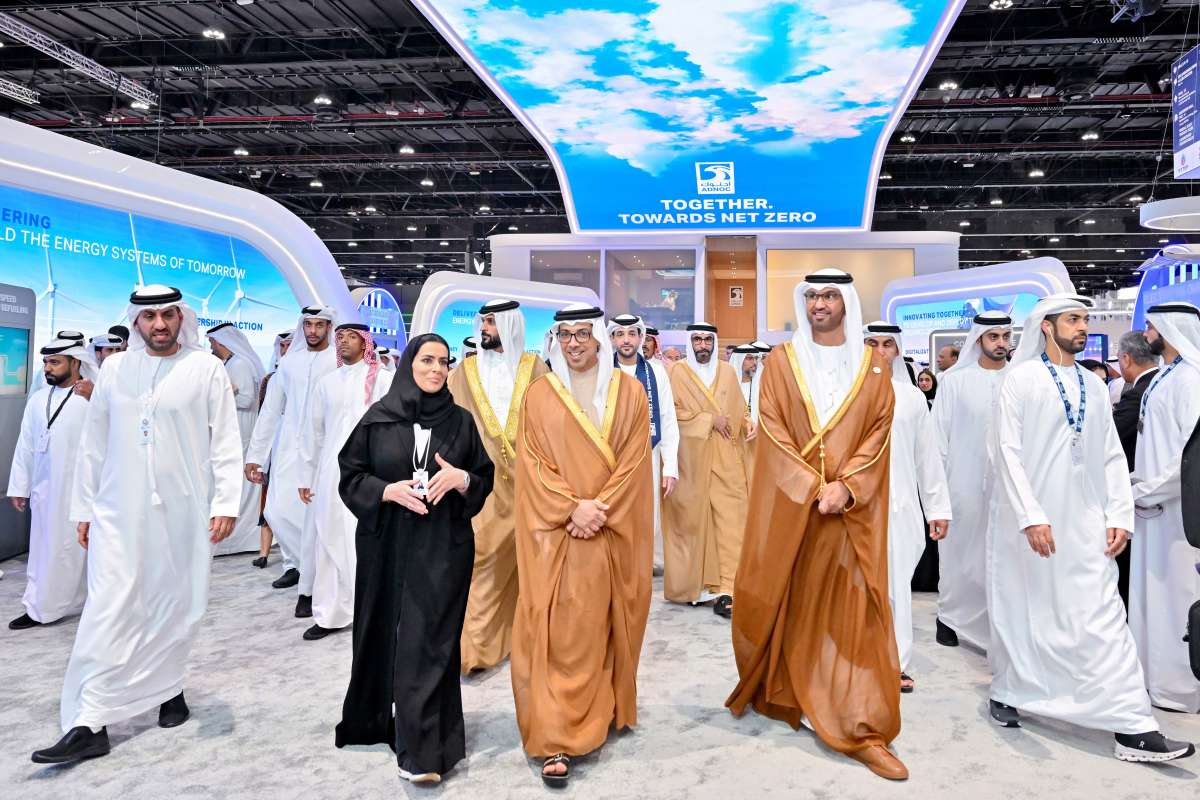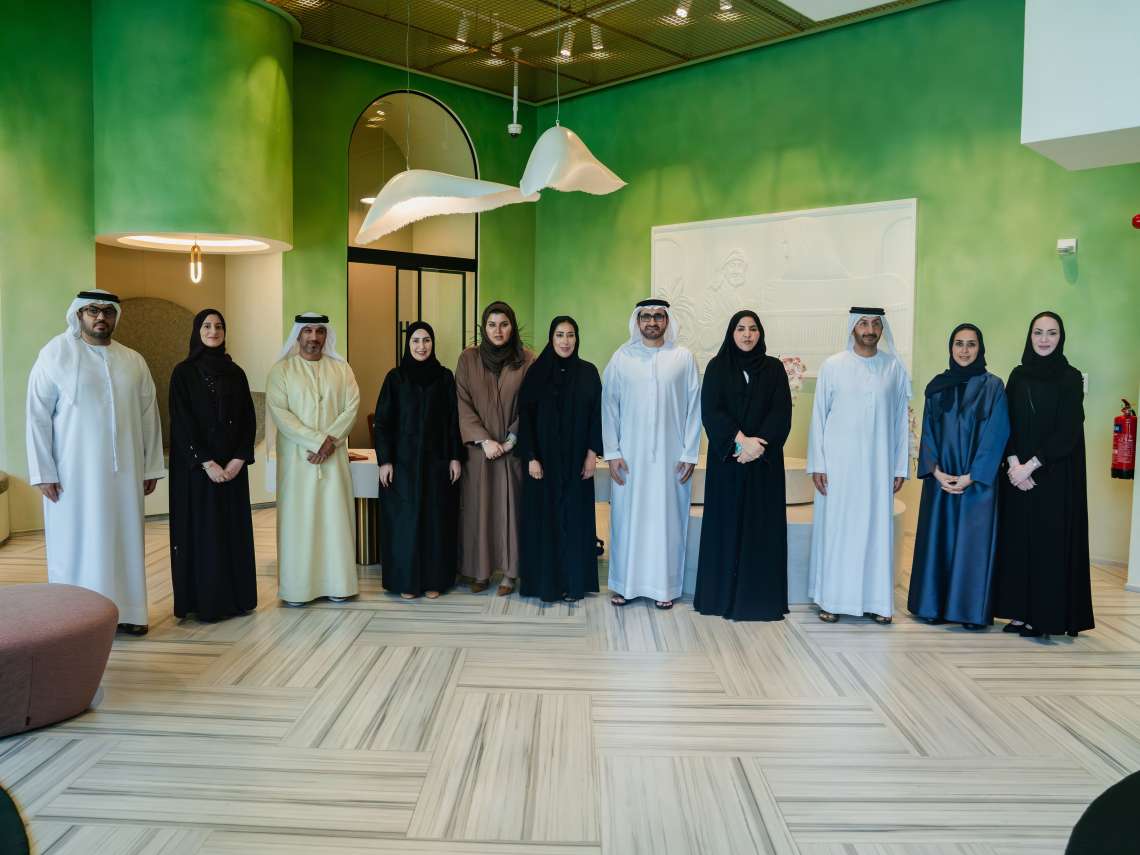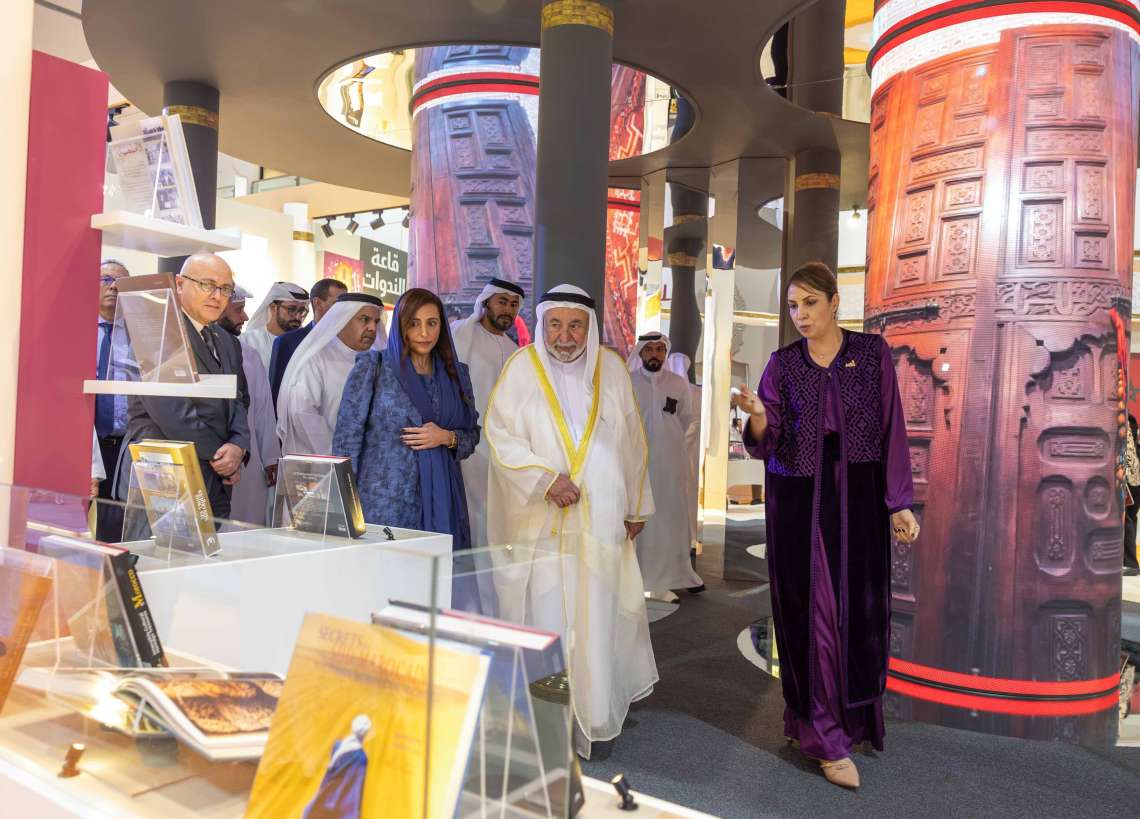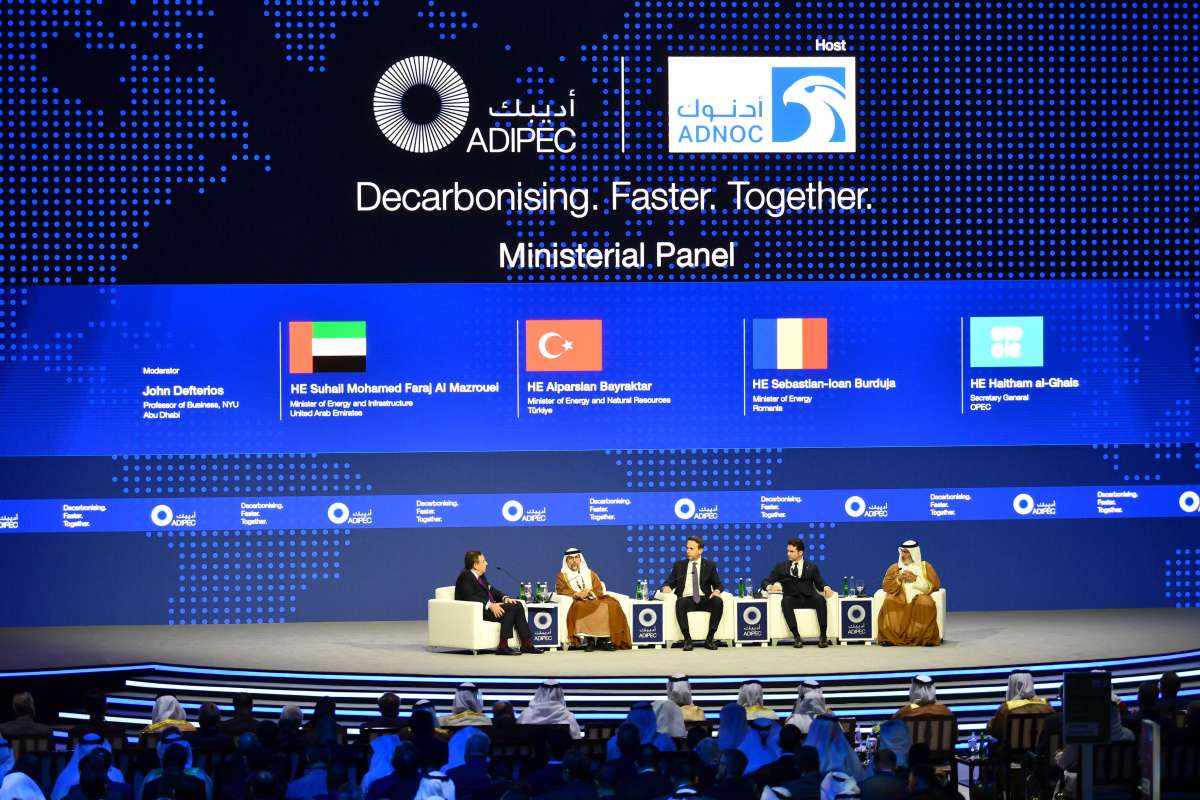His Highness Sheikh Mansour bin Zayed Al Nahyan opened the 39th edition of ADIPEC Exhibition and Conference with Dr. Sultan Al Jaber calling on oil and gas industry to rally around ambitious decarbonisation targets….reports Asian Lite News
ADIPEC 2023 kicked off yesterday under the patronage of President His Highness Sheikh Mohamed bin Zayed Al Nahyan at the Abu Dhabi National Exhibition Centre (ADNEC) and will run until 5th October.
His Highness Sheikh Mansour bin Zayed Al Nahyan, Vice President, Deputy Prime Minister and Chairman of the Presidential Court, opened the 39th edition of the event.
Held under the theme of “Decarbonising. Faster. Together”, the exhibition gathers the global energy industry to advance decarbonising today’s energy system and collaborate on tomorrow’s energy system.
Featuring a rich exhibition programme that covers energy-related technology, innovation, collaboration, and digitalisation, ADIPEC 2023 is expected to attract more than 160,000 attendees from 164 countries for its biggest edition ever.
The event is taking place just seven weeks before the UAE hosts COP28, providing a platform to convene energy and related industries to align on the lower-carbon, high-growth future of energy.
The ADIPEC Exhibition will enable visitors to connect with over 2,200 global companies across 16 exhibition halls and 30 country pavilions, making it an ideal platform to drive business growth through its invaluable opportunities for cross-sectoral networking, deal-making, and knowledge exchange.
This year, ADIPEC also includes four specialised areas that facilitate cross-sector collaboration and game-changing partnerships – Decarbonisation Accelerator, Maritime and Logistics Zone, Digitalisation in Energy Zone, Manufacturing, Industrialisation Exhibition and Conference.
Al Jaber Rallies Oil & Gas Industry
Dr. Sultan bin Ahmed Al Jaber, Minister of Industry and Advanced Technology and COP28 President-Designate, called on the oil and gas industry to rally around ambitious decarbonisation targets as part of the COP28 Presidency’s Action Agenda to fast-track the energy transition and keep 1.5C within reach.
In his keynote speech during the opening of ADIPEC 2023, Dr. Al Jaber reiterated calls on industry to “step up, align around net zero by or before 2050, zero-out methane emissions, and eliminate routine flaring by 2030.”
He welcomed recent progress and action from over 20 oil and gas companies, including both international and national oil companies (IOCs and NOCs), which have “positively answered the call” to take the challenging but achievable steps to curb emissions from the production of energy.
Describing the progress, Dr. Al Jaber said, “This took time, effort and many months of hard work, negotiation and collaboration. We are counting on many more to come onboard and start taking action to decarbonise further and faster. I urge everyone to make this commitment at COP28, a COP where I am calling on everyone to set the highest ambitions, follow through with practical actions and deliver real results.”
Dr. Al Jaber issued his call to action at the beginning of ADIPEC 2023, the largest and most inclusive energy industry gathering.
The event, which runs from 2-5 October, welcomes more than 2,200 exhibiting companies – including 54 NOCs, IOCs, and IECs – 30 country pavilions and 160,000 attendees, under the theme ‘Decarbonising. Faster. Together.
Dr. Al Jaber said that “This industry can and must help to drive the solutions. For too long, this industry has been viewed as part of the problem, that it is not doing enough and, in some cases, even blocking progress. This is your opportunity to show the world that, in fact, you are central to the solution.”
Noting the scale of the climate challenge, Dr. Al Jaber stated that “the world must reduce emissions by at least 43 percent over the next 7 years to keep 1.5 within reach. And that is our north star. It is our destination. It is simply respecting the science. And we must do this while also ensuring human prosperity by meeting the energy needs of the planet’s growing population.”
Describing the necessary actions, Dr. Al Jaber highlighted three key areas that he was prioritising, including: curbing emissions from the production of energy, scaling up renewables, and decarbonising hard-to-abate sectors, such as steel cement, aluminum and heavy transportation.’
Discussing the immediate steps that he expects the oil and gas industry to take, Dr. Al Jaber noted that “Eliminating methane leaks and flaring is the fastest way to make the biggest impact on operational emissions in the short term.”
Dr. Al Jaber also noted the critical role that the oil and gas industry has in scaling up renewables, highlighting how they represent “an opportunity for this industry to diversify and future proof its business models.”
Acknowledging that intermittency meant renewables were not a viable solution for heavy emitting industries, Dr. Al Jaber emphasised the need to find low-carbon solutions to decarbonise hard-to-abate sectors, such as steel, cement, aluminum, and heavy transportation.
“We know that solutions exist, and all industries can and must respond. But they can’t act alone. Governments should be proactive in setting the right demand signals and dealing with critical issues like permitting.”
He also stated the need to “overcome the hurdles to scale up and commercialize hydrogen and carbon capture technologies.”














